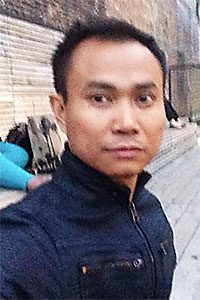With over a decade of political turmoil and almost five years under a military dictatorship, it comes as no surprise that Thailand is no longer the front-running economic powerhouse in Southeast Asia. The country's economic growth has been much lower than that of Vietnam, Indonesia and the Philippines.
In terms of political development, we are no longer regarded as one of the region's beacons of democracy. In fact, Thailand is now in the same league as Cambodia and Myanmar, which are struggling to build or rebuild their democratic systems.

What a lost opportunity!
That said, the country should be able to recover quickly from the stagnation -- just like we did after the 1997 financial crisis.
Sunday's general election, the first in eight years, should have marked a new beginning for the country to start gaining international recognition as a democratic state -- not "the world's last military dictatorship" as described by some foreign media -- and attract more foreign investment.
However, one sore loser -- the Palang Pracharath Party (PPRP) -- and the Election Commission seems to be trying to derail this prospect by taking actions that appear to have been driven by a not-so-high level of moral standards. The former has refused to accept that it is not the biggest winner, while the latter has turned the polls into a sham in the eyes of the world.
Immediately after the unofficial results of the poll were announced, the pro-military regime PPRP tried to claim legitimacy to form a government, even though it came second in the poll.
Unofficial poll results show that the anti-regime Pheu Thai Party gained 137 MP seats, while the PPRP has about 119.
Under long-held parliamentary tradition, Pheu Thai has earned the right to be the first party to set up a government. This has been standard practice since the birth of the country's People's Constitution in 1997.
Yesterday, Pheu Thai gained the support of other parties that would give them a majority in the Lower House to form a government. But the PPRP has cited the highest popular vote it received from the electorate as a basis for the party to compete with Pheu Thai's bid.
This is poor and self-serving logic, as Thailand's parliamentary system considers the party with the highest number of MPs to be the winner of the election.
As such, PPRP should have waited for the Pheu Thai to fail at establishing a coalition government first, before making its move.
PPRP should start playing by the rules because the system has already been rigged to give it an advantage over other parties. The regime-sponsored constitution gives unprecedented powers to 250 senators -- who will be handpicked by junta leader, prime minister, as well as PPRP's prime ministerial candidate Gen Prayut Chan-o-cha -- to vote for a prime minister alongside other democratically elected MPs. It is a shameless rule invented to help facilitate Gen Prayut's return to power.
With the expected support from the Senate, PPRP can still form a minority government. But its administration will be unstable and vulnerable to motions of no confidence, making it difficult for the government to pass legislation, implement policies, and instigate frequent deadlocks in parliament.
At the same time, the EC has refused to disclose the total number of votes received by all parties. Instead, it will reveal only 95% of the total votes counted this Friday, while the rest will be unveiled later. This makes it hard for political parties to know exactly how many votes they received, which they need in order to calculate the number of their party-list MPs.
The many irregularities found at polling stations and during vote counting -- such as mistakes in calculating and tabulating the results of the polls -- have raised concerns over whether there are systematic efforts to rig the polls initiated by certain state officials.
The EC has already lost the public's trust through its actions, which have been decried as favouring Gen Prayut -- such as its alleged gerrymandering of electoral boundaries to favour the PPRP, and turning a blind eye to complaints filed against it.
This election should have been a chance for Thailand to show the international community that the kingdom is ready to make a transition to democracy. Instead we are engaging in another round of political conflicts resulting in even more uncertainty.
When the military staged the coup, it blamed politicians for being corrupt and self-serving. Almost five years on, the coup makers have failed to convince the public that they are better than those elected politicians when it comes to transparency. For many, the coup has derailed the country's progress in terms of both economic and political development.
What both the PPRP and the EC have done instead, is rub more salt into the wound.
Surasak Glahan is deputy op-ed editor of the Bangkok Post.
